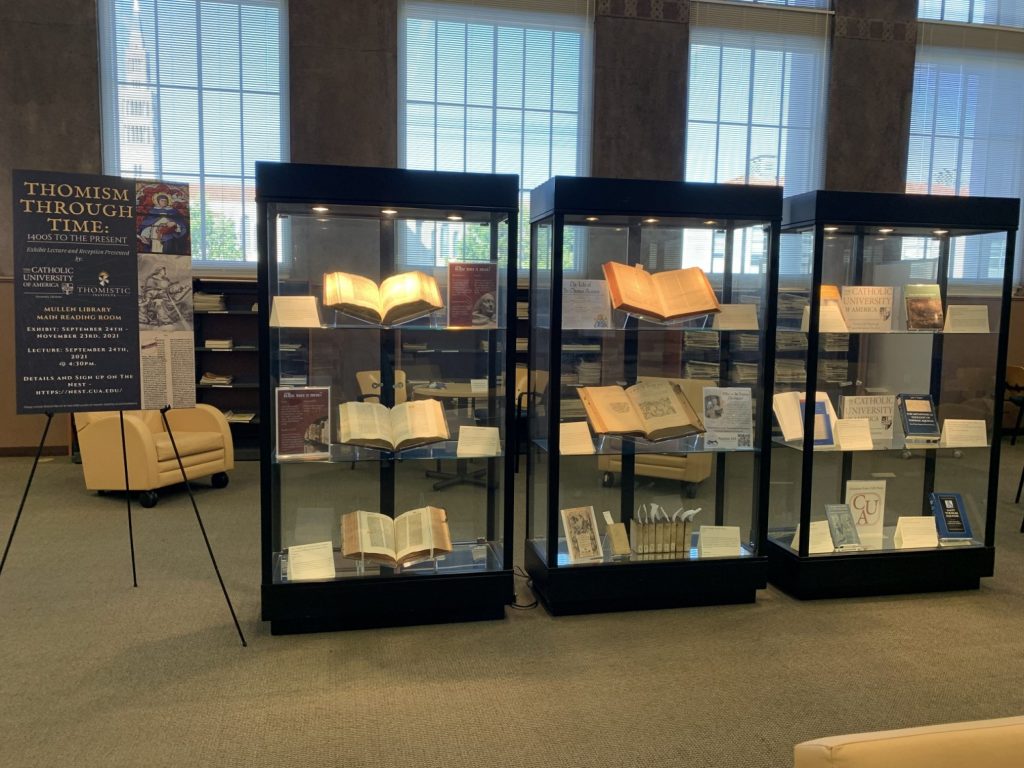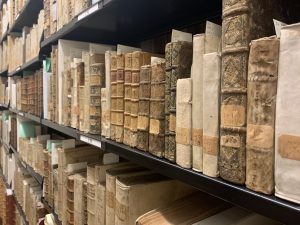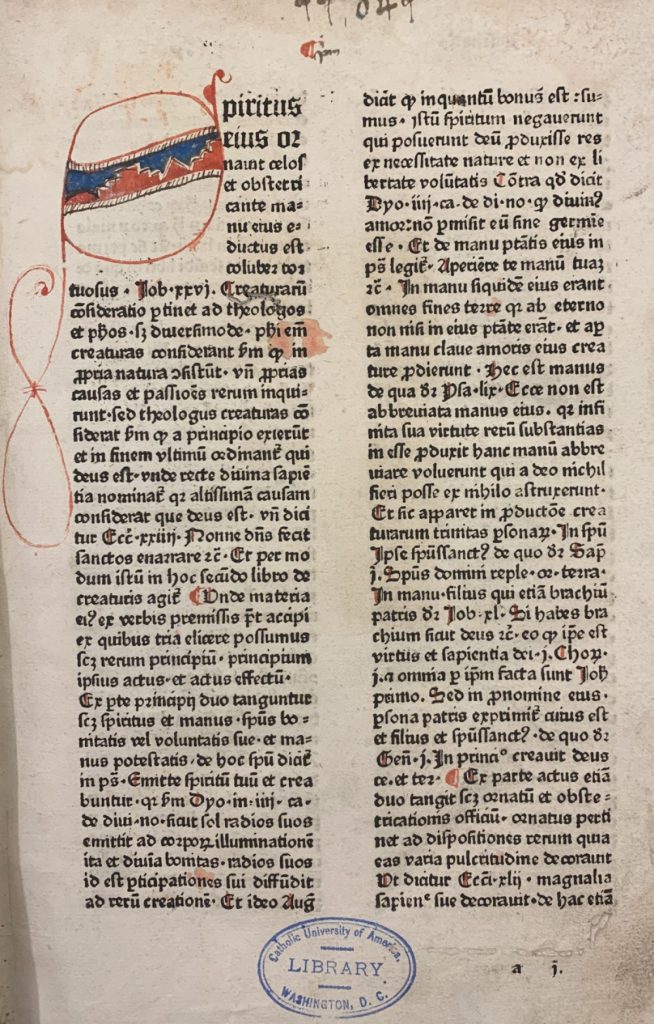I first encountered Aquinas during my time as a philosophy undergraduate at St. Thomas Aquinas College in Sparkill, NY, and his proofs for the existence of God had a great impact on my “reconversion,” my coming back home to the Catholic Faith, after years of falling away as an atheist. Thus when I learned about the Thomistic Institute Intellectual Retreat to be held in October of 2020 and entitled “Choosing Well: Practical Wisdom in an Unpractical Time,” I jumped at the opportunity to apply, and to steep myself more in Aquinas’ works with the guidance of professors who knew him best. It was a life-giving weekend that proved to leave a huge impact on me. I experienced the Divine Office in its entirety for the first time, and was transfixed by the beauty of the chanted Psalms. I was also energized by the presence of other young adults, some who were in graduate school, some who were young professionals, all of whom were on fire for their faith. It was an inspiring environment, and it led me to consider how I could incorporate the teachings of St. Thomas Aquinas into my own work.
Now I had the inspiration, but what was I supposed to do next? I wanted to work with the writings of St. Thomas Aquinas, but I’m not a scholar. Still, there must be a way to merge what I do on a daily basis with his work. That’s when I recalled that Special Collections, where I work, has some manuscripts related to his writings! I sought the advice of my colleague Shane MacDonald, the expert on our Rare Books Collection, and together we discovered that we did indeed have two manuscripts from the 15th century related to St. Thomas Aquinas – MS200 and MS201. MS200 is a copy of the first half of his Commentary on Book IV of the Sentences of Peter Lombard and MS201 is a copy of his Quaestiones de duodecimi quodlibet. After inspecting these two items closer and consulting our catalog entries for them, I determined that, given their historical significance and the fact that they are manuscripts, they would be the centerpiece of the exhibit.
But two books does not an exhibit make! In order to make a digital exhibit, I would need to incorporate many more items, which I would then pick out of if I choose to create a physical exhibit. I turned to our catalog and found over 100 items related to St. Thomas Aquinas in our collection. This would require some sorting and refining of what I wanted to focus on! I considered my prospective audience – I wanted to reach the widest audience possible on the Catholic University campus, which meant that I would want to highlight the most “popular” works of Aquinas, to create a sort of introduction to his thought, while also emphasizing the importance of Aquinas to Catholic University.
After a month of research and browsing our stacks, I narrowed my list down to fourteen items – two manuscripts, two incunables, four examples of the Summa Theologiae, four examples of 16th century folios, and two pamphlets. This variety would create a visually dynamic experience – books of various sizes, colors, and lengths – while providing an appropriate scope for beginners to experts in St. Thomas Aquinas. I plugged in all of the research, writing, and photographs I had worked on over the spring of 2021 into Omeka, a web-publishing platform for digital collections, and published the site after receiving feedback from my colleagues.
I could have stopped at just the Omeka site, but I wanted to stretch myself and exercise some of the skills that I learned in my Library Science courses, such as website building. Using Wix, I wanted to create an accessible space for visitors, with an attractive environment that could fully convey the mission of the exhibit, but in a way that had more creativity and flexibility than Omeka. This was one of the parts of the project that I was most proud of. You can visit the Wix site here, and the Omeka site here!
Although I was extremely happy with the results of the digital exhibits, I still felt that we could reach a wider audience, and an in-person exhibit in the main library might be just the thing to do this. I discussed my idea with the University Archivist, John Shepherd, and we began the process of planning.

I decided to take a three pronged approach with this exhibit, as there would be three cases. The first case would have three items – the two manuscripts and one of the incunables. Its purpose would be to feature our oldest items, and introduce guests to rare book terms. The second case would include the different copies of the Summa Theologiae, in order to showcase the various sizes and editions of Aquinas’ most important work. Finally, the third case would have selections of current publications from the Catholic University School of Philosophy, School of Theology and Religious Studies, and from the CUA Press. The goal of this last case would be to make students aware of the fact that current work is being done on St. Thomas Aquinas, possibly even by their own professors. I wanted to tell the story of the works of St. Thomas Aquinas not only in his time, but in ours as well.
The exhibit was kicked off by a special event, held on September 24th, 2021 by the co-sponsorship of the university Special Collections and the Thomistic Institute. CUA professors Dr. Kevin White and Msgr. John Wippel, through whose efforts the two manuscripts, which are the focal point of the exhibit were acquired, were both speakers at the event, as well as Fr. Dominic Legge, the Director of the Thomistic Institute. We had a total of 52 attendees, and the entire staff of the Catholic University Special Collections was thrilled with the turn-out. Our goal is always to reach as many people as possible through our collections, and we hope that through exhibits such as Thomism Through Time, more students will be able to experience that same burst of invigoration and inspiration that I did upon first discovering him.
St. Thomas Aquinas, pray for us!
If you wish to see the exhibit yourself, it’s running in the Main Reading Room of Mullen Library until November 24th, 2021!


